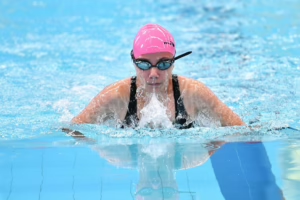Why Every Student Can Benefit from a Physics and Math Tutor: Insights and Tips
In the rapidly evolving landscape of education, the challenges faced by students in subjects like physics and mathematics are more pronounced than ever. These subjects, often viewed as daunting by many, form the backbone of understanding the natural world and technological advancements. In this article, we will explore why every student can benefit from the support of a physics and math tutor, backed by insights, tips, and experiences aimed at enhancing academic performance and fostering a lifelong love for learning.
Understanding the Importance of Physics and Math
The Role of Physics and Mathematics in Education
Physics and mathematics are foundational subjects that underpin many fields, including engineering, computer science, medicine, and economics. Students equipped with strong skills in these disciplines are often better prepared for advanced studies and careers in these areas.
-
Critical Thinking and Problem-Solving Skills: Mathematics trains students to think logically, analyze problems, and devise solutions. Similarly, physics encourages students to apply mathematical concepts to real-world situations, enhancing their critical thinking abilities.
-
Interdisciplinary Connections: Proficiency in math and physics opens doors to interdisciplinary education. For instance, a solid grasp of calculus is essential for students pursuing biology, particularly in fields like genetics and biophysics.
-
Technological Proficiency: Many modern technologies rely heavily on principles derived from physics and mathematical algorithms. Understanding these subjects enhances a student’s ability to engage with technology critically and innovatively.
The Emotional and Psychological Impacts
Beyond tangible skills and knowledge, studying physics and math helps build resilience and confidence. When students tackle challenging concepts and succeed, they not only gain academic skills but also develop a growth mindset.
-
Building Confidence: Many students enter high school or college with a preconceived notion that they are “not good” at math or physics. A tutor can help dismantle these myths, providing personalized attention that reinforces positive reinforcement and mastery of the subjects.
-
Reducing Anxiety: High-stakes exams and difficult coursework can induce significant stress. A tutor can help manage this stress by developing effective study strategies, providing regular feedback, and helping students progress at their own pace.
Who Can Benefit from a Tutor?
Students Struggling with Course Material
Students who find themselves struggling with the content presented in class often benefit most from one-on-one tutoring. A tutor can tailor lessons to the student’s unique learning style and pace, filling in gaps in understanding that might not be addressed in a classroom setting.
Gifted Students Seeking Advancement
Conversely, gifted students may require additional challenges that go beyond their school curriculum. A tutor can provide enrichment opportunities, advanced problem sets, or even introductions to college-level material, preparing these students for future academic endeavors.
Students Preparing for Exams
High-stakes exams, such as the SAT, ACT, or AP exams, can be crucial moments in a student’s academic career. Tutors can guide students through targeted review, practice tests, and strategies to approach these exams with confidence.
Non-Traditional Learners
Every learner has a unique background and set of experiences. Non-traditional students—whether adult learners returning to school, students with learning disabilities, or those with English as a second language—can greatly benefit from tutoring that caters to their specific needs.
Finding the Right Tutor
Qualifications to Consider
Choosing the right tutor is essential for the effectiveness of the tutoring experience. Here are several factors to consider:
-
Educational Background: Tutors should have a strong understanding of the subject matter. Ideally, they should have degrees in physics, mathematics, or educational credentials in teaching these subjects at the appropriate level.
-
Experience with Students: A tutor’s experience working with students similar to your own is crucial. Check for testimonials or success stories that demonstrate their ability to engage and improve student outcomes.
-
Teaching Style: Every student has a different learning style—some may thrive under direct instruction, while others may prefer a more hands-on approach. Discuss teaching philosophies with potential tutors to find the best match.
-
Availability and Accessibility: Consider the tutor’s availability in relation to your schedule. Additionally, assess whether the tutor offers in-person sessions, online tutoring, or a hybrid approach.
The Initial Meeting
Once you identify potential tutors, arrange an initial meeting to gauge compatibility. Here’s what to look for during this introductory session:
-
Communication Skills: The tutor should be able to explain concepts in a clear and concise manner, adapting their communication style to fit the student’s understanding.
-
Assessment of Current Skills: A good tutor will conduct an informal assessment to identify the student’s strengths and weaknesses. This helps tailor future sessions effectively.
-
Goal-Setting: Discuss academic goals and expectations for the tutoring sessions. Clear, defined objectives help maintain focus and motivation throughout the tutoring process.
Structuring Effective Tutoring Sessions
Creating a Positive Environment
A productive tutoring session starts in a supportive environment. Here are some tips for both tutors and students:
-
Set Clear Objectives: Before each session, outline what will be covered. Having specific goals can help maintain focus and enrich the learning experience.
-
Interactive Learning: Incorporate interactive elements like problem-solving exercises or discussions to engage the student actively.
-
Use Technology Wisely: Utilizing apps and resources can enhance understanding. Tutors can recommend online platforms or tools that facilitate additional practice outside of sessions.
-
Provide Constructive Feedback: Encourage discussion of mistakes, framing them as learning opportunities rather than failures. This reinforces a growth mindset.
Tailoring Sessions to Individual Needs
Every student learns differently. A tutor should be flexible and adaptive to the individual needs of their students. Consider these strategies:
-
Assessment-Based Adjustments: Regularly check in with students to assess their understanding. Adjust the pacing and complexity of topics based on their performance.
-
Incorporate Real-World Examples: Relating math and physics concepts to real-world scenarios can greatly enhance a student’s understanding and retention of material.
-
Building a Mastery Approach: Focus on mastering concepts rather than rushing through topics. Students who thoroughly understand foundational concepts are more likely to succeed in advanced material.
Supplementing Tutoring with Self-Study Strategies
Importance of Independent Learning
While tutoring provides valuable guidance, fostering independent study habits is essential for long-term success. Here are some strategies for students to complement their tutoring sessions:
-
Regular Practice: Consistency is key in both mathematics and physics. Schedule regular times to engage with the material, practicing problems or exploring concepts learned in tutoring sessions.
-
Utilize Online Resources: Numerous platforms offer free or reasonably priced resources for additional practice. Websites like Khan Academy, Brilliant, or various YouTube channels provide excellent supplemental materials.
-
Form Study Groups: Engaging with peers can enhance understanding through discussions and collaborative problem-solving. Study groups can also offer moral support and different perspectives on the material.
-
Utilize Flashcards: For formulas, key concepts, or terminology, flashcards are a helpful way to reinforce memory and understanding.
The Impact of Tutoring on Academic Performance
Academic Improvement
Numerous studies suggest that tutoring can lead to significant improvement in academic performance. A report from the National Bureau of Economic Research found that students who received individualized tutoring significantly outperformed their peers in standardized tests and overall grades in subjects, including math and science.
Behavioral Changes
Beyond academic performance, students who engage in tutoring often demonstrate improved attitudes towards learning. They may become more engaged in the classroom, develop better study habits, and exhibit increased motivation.
The Ripple Effect of Tutoring
Scalable Benefits
The benefits of tutoring extend beyond individual students. When students improve their performance in physics and mathematics through tutoring, the ripple effect can be felt across their academic careers and into their professional lives.
-
Increased Classroom Participation: Students who understand the material are more likely to participate in class discussions, enriching the learning environment for their peers.
-
Encouragement of Collaborative Learning: Improved performance can motivate students to share their knowledge with classmates, fostering an atmosphere of collaboration rather than competition.
-
Future Workforce Readiness: As today’s students become the workforce of tomorrow, their enhanced problem-solving skills and confidence in technical subjects contribute to innovation and progress in a variety of fields.
Long-Term Educational Outcomes
Tutoring has been shown to influence long-term educational trajectories, leading to increased enrollment in advanced courses, higher rates of college attendance, and better performance in post-secondary studies.
Conclusion: The Case for a Physics and Math Tutor
In an age where critical thinking, problem-solving skills, and technological literacy are keys to personal and professional success, the importance of subjects like physics and mathematics is more pronounced than ever. A physics and math tutor can play a vital role in transforming the way students engage with these subjects, providing personalized support that caters to their unique needs, addressing gaps in understanding, and instilling confidence.
Whether students are struggling, excelling, or somewhere in between, the benefits of tutoring extend far beyond improved grades. The academic, emotional, and psychological impacts form a robust foundation for lifelong learning and exploration. As we continue to champion educational success, recognizing the value of personalized tutoring in physics and math is essential. No matter the student’s current abilities, there’s always room for growth, and tutors are uniquely positioned to help them achieve their full potential.
References
- National Bureau of Economic Research. “The Effect of One-on-One Tutoring on Student Performance.”
- Cowan, J. “The Role of Supplemental Instruction in Student Learning.” The Journal of Higher Education.
In this article, we’ve reviewed the multifaceted benefits of tutoring in physics and math, explored the reasons why students seek tutors, and provided insights on how to make the most of this educational opportunity. Ultimately, the journey of learning should be an empowering experience for students, and professional guidance can make all the difference.


























Add Comment